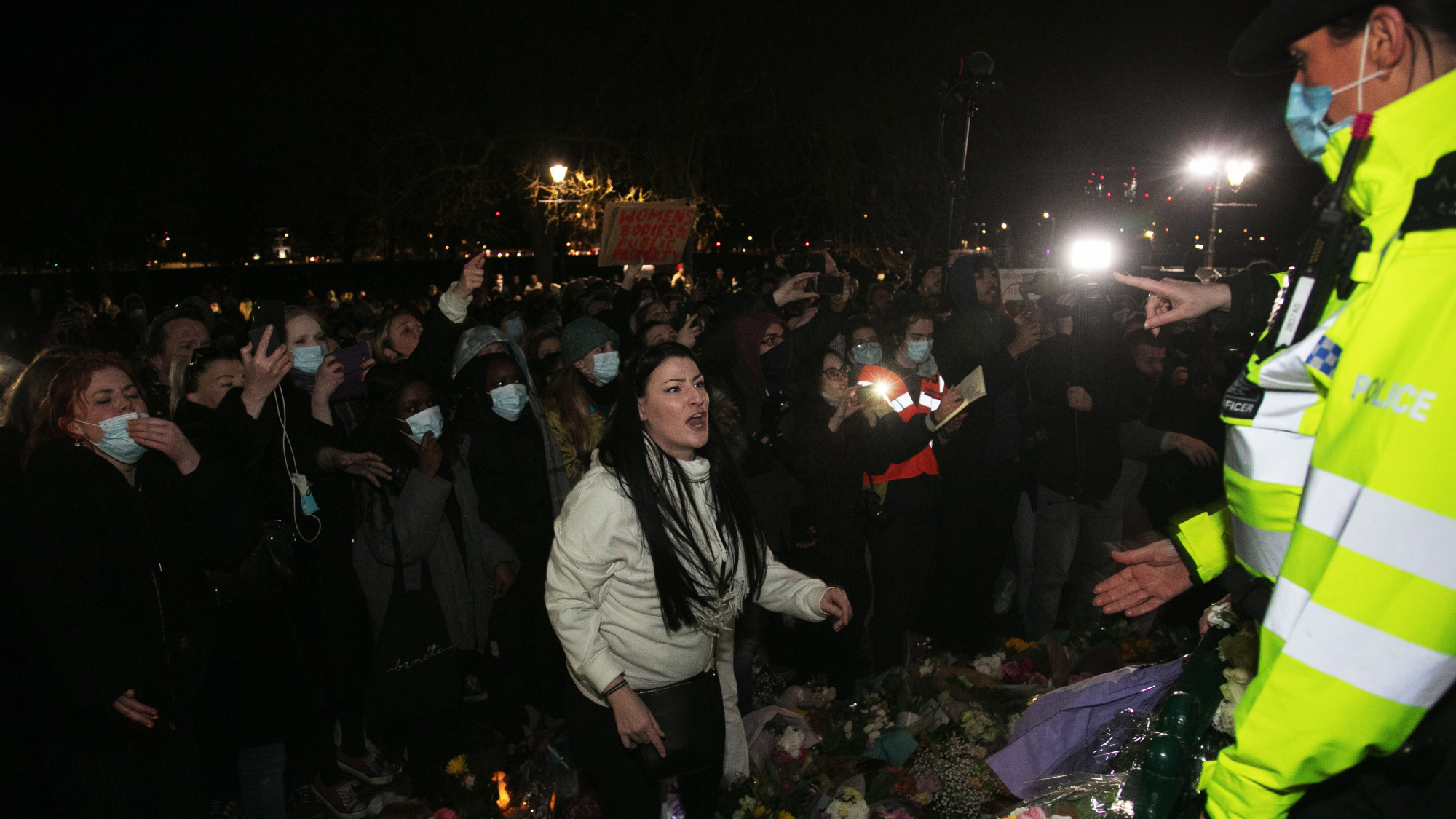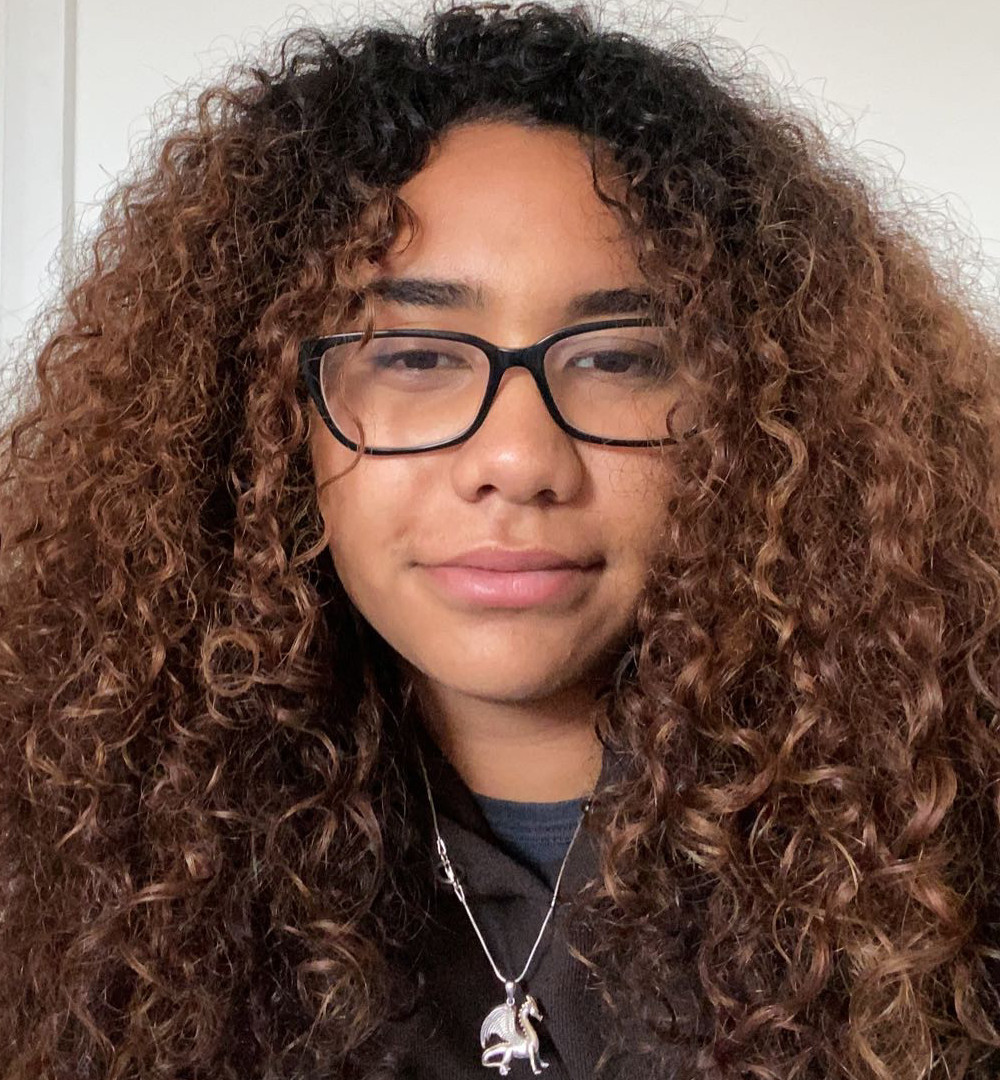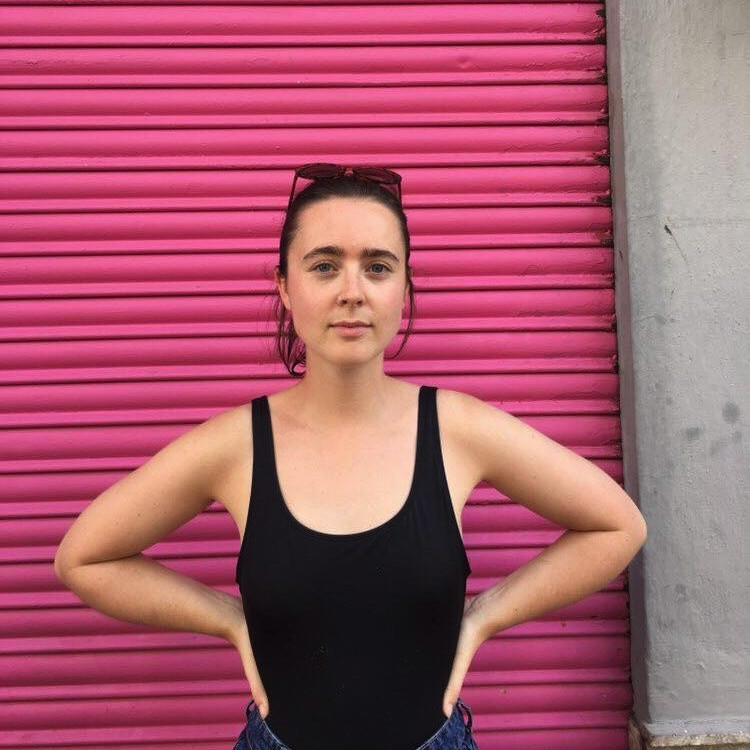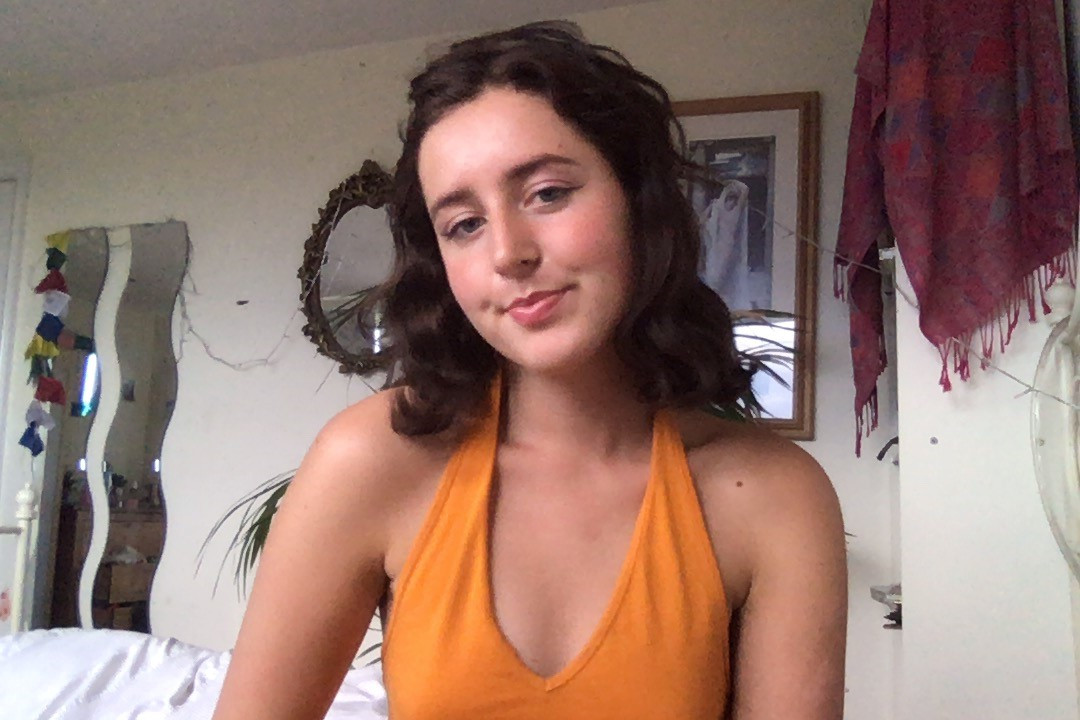These women were at Sarah Everard's vigil and this is what they want you to know
As the vigils, protests and political fallout continues following Sarah Everard's shocking death and the distressing scenes at the Clapham Common vigil, three young women explain what it felt like to be there and the physical and psychological impact it has had on them


As the vigils, protests and political fallout continues following Sarah Everard's shocking death and the distressing scenes at the Clapham Common vigil, three young women explain what it felt like to be there and the physical and psychological impact it has had on them
‘I saw women dragged away by the police at the vigil’
Mya Coco-Bassey, 19, is a student at UCL from London
'My intention was to simply light a candle, mourn Sarah and stand with other women at the vigil who have the same fears, anxieties and experiences as me. It was the first time I have ever had a chance to be with women in such a space, to honour Sarah Everard and every other woman who has suffered at the hands of male violence, which feels like an epidemic in itself.

I have feared for my safety on London streets since I was 14, so let's not allow the police action on Saturday to take away from the fact that Sarah’s death has forced thousands of women to find their voices and express the realities of living as a woman. The social media fallout really affects me. The constant stream of statistics and accounts of harassment, assault and abuse perpetrated by men. These posts trigger an emotional panic, recalling my own experiences of harassment which have been plentiful since I became a teenager. For me the vigil was an opportunity to get out of my own head, to see all the strong women who have lived with these experiences and who want to stand together.
'Shame on you' chants
We arrived about 6.15pm, I went with my flatmates and my younger brother (If I was expecting a protest, I would never would have taken him). As we arrived the police were already removing women from the bandstand. These women just wanted to speak and remember Sarah. The crowd were so surprised and hurt by these actions. To me it looked like there were over 100 police officers and more and more kept arriving. As far as I could hear they weren’t even telling the gathering to disperse at that point, their main concern wasn’t social distancing but it seemed only to be to silence the women.
As more police arrived, the mood turned very sour. The police weren’t responding in a logical manner, they just occupied the bandstand and brought out more and more officers. The crowd began to become increasingly frustrated as we watched women being dragged away, that’s when the chants of "Shame on you" and anti-police sentiment came in full force. We were women just wanting to have a vigil. Many were there because Sarah's fate deeply saddened but also scared them.
The sadness turned to anger as we had no option but to face reality, the police didn’t want to hear our stories, and they were not there to protect us. They were there to enforce the rules, and in a society where the rules are catered to men, specifically men with power this scared me.
We never really got a moment to think of Sarah
So the sadness turned to anger because I felt I had nowhere to turn and if I left and allowed women to be manhandled and dragged away simply for expressing their freedom of speech then I would be part of the problem. At many points I was very scared, I was scared for my brother (a young brown boy) around so many officers, I was also scared for myself as the police moved aggressively and in such large groups.
Celebrity news, beauty, fashion advice, and fascinating features, delivered straight to your inbox!
I think one man threw something (injuring no one and I don’t agree with his actions) but the police response was to run from the bandstand at him in a group of nearly twenty; shoving tens of women out of the way in the process. That scared me, not the man throwing something, the police scared me.
We left at around 8:30pm because a woman came up to us and said that there were reports that many more police were coming and at that point I was too scared of them becoming violent. I was sad to leave because I never really got a moment to think about Sarah, instead we lit candles on a small memorial on a park bench and left feeling even less empowered and actively afraid of the Metropolitan Police.
I now feel more afraid than before
I now have a powerful distrust of the Met, I believe the whole vigil should have been handled better from the get go. The court ruling should have attempted to work with the organisers. All of this could have been avoided. It was certainly the police presence and the extreme heavy handedness of that presence which created the situation we saw.
I do feel more afraid because of what happened at the vigil because I don’t believe the police are there to protect and serve us. I believe they are there to protect and serve the people who are protected by the laws written by men and designed to protect men.'
'It’s exhausting existing in this state of anxiety'
Matty Hadfield, 24, is a teaching assistant from south London

'I went because I had to. It wasn’t a choice for me. Structural change needs to come about to stop male violence towards women. It’s endemic to our society. My mother is a strong, feminist figure in my life and she opened up these discussions in our home very early on. I’ve always felt shaken by male violence against women. When Sarah was murdered, I felt deeply upset and angry. I needed that space to stand with my sisters and mourn. Not just for the brutal, senseless murder of Sarah but for countless women that are killed every year by men.
I arrived at 6pm with my housemate. I had a few friends already there, including my younger sister, Esme [read her story next]. The vigil was peaceful and felt heavy. Women surrounded the bandstand and laid flowers. There was a tangible atmosphere of collective grief and mourning. A member of Sisters Uncut, a feminist direct action group, shouted a speech from the bandstand. People at the front repeated the speech back, line by line, so those further back could hear. The speech explained the notion behind Reclaim the Night, a movement that began in 1977 in response to the Yorkshire Ripper serial murderer.
After a murder like Sarah's happens, women are told to stay at home at night. That we must take precautions if out late at night, and that if we don’t - if we are too drunk, or too promiscuous or have chosen to walk rather than get a taxi past a certain time - then we’ve put ourselves in danger. The implication is that we’re complicit in any violence we may encounter. Reclaim the Night says men need to change their behavior. Not women.
We only wanted a space to grieve
I remember the bandstand speech started with, "I don’t care if you’re a sex worker, I don’t care if you’ve been drinking, I don’t care if it’s late". She also shouted, "Sarah was murdered by a member of the Metropolitan Police, who had been reported for indecent exposure, and was allowed to continue to work". Chants such as, "Sisters, United, we’ll never be defeated" began after the speech. Yes, I could feel women’s anger. Of course it was there, given the nature of what happened to Sarah. What happens to one woman every three days. But it felt safe. We were merely trying to carve out a space to grieve and express our anger.
Police presence gradually got bigger. During the speech, I noticed a policeman emerging from the back of the crowd. I kept looking back in the speech, aware that they could jump in at any moment. I pre-empted police presence at this event, and had written down the Sister’s Uncut Legal Aid number on a piece of paper. The police don’t make me feel safe or protected. I felt anxious by them being there - and angry. As the vigil went on, the police started making their way through the crowd and some got up onto the bandstand.
That’s when the atmosphere of the vigil started to shift. Women felt angry that police had occupied our centre stage. They tried to stop the speakers from continuing. Chants of "Let her speak, let her speak!" began. The crowd became more distressed at their presence. We should have been able to mourn in peace. I left before the police started arresting people and handling women aggressively. It seems as soon as it got dark the police felt entitled to start manhandling women. I was cold and felt emotionally exhausted. The vigil had become about getting the police off stage, and I wasn’t there for that. I was there to mourn.
I don't trust the police
They only protect certain demographics. How can I trust the police, when a member of the Metropolitan Police killed Sarah Everard? Someone might argue this was one officer, and is an extremely rare case. But I’d ask them, why was this police officer allowed to continue working, after a report of indecent exposure? How can I trust the police, when I know if I was raped and reported it, there is a less than 5 % chance my rapist would face penalties? Their presence at the vigil - the completely unnecessary aggression they used for a vigil mourning the death of a woman murdered by one of their own - has amplified my distrust and anger towards them.
I challenge anyone to find me a woman who hasn’t feared their safety on the streets at night, or taken precautions to ensure the risk of encountering male violence is minimised. Even if a woman has never encountered male violence on the streets, it’s exhausting existing in a state of anxiety that we could be attacked. I do not have enough fingers to count the number of stories of women in my life, including myself, that have been followed, shouted, attacked, assaulted or chased by men on the streets.
After Sarah’s murder I called my Mum in tears. She told me "Matt, you cannot live your life in fear". And it’s true. Yes, I’m fearful for my safety on the streets, but I can’t stop that fear from allowing me to live my life. I can’t.'
'Police grabbed flowers for Sarah out of women's hands'
Esme Hadfield, 19, is a student at the University Of Manchester
'Like millions of other people, I've found the news about Sarah’s death very disturbing. As a young woman who grew up in South London, this story felt close to home. It felt necessary to attend the vigil because I wanted to be around other women who felt just as angry and upset about Sarah’s murder as I did. It's so important these events take place, in order to help change the culture of street harassment and male violence.

The beginning of the vigil was peaceful. People were standing around the bandstand in silence. Speakers got up onto the bandstand to talk about Sarah's murder and the crowd listened. Many women were carrying flowers onto the bandstand to pay their respects. As the vigil went on into the night, more and more police arrived. The police started grabbing speakers and taking them off the bandstand, preventing the speakers from talking to the crowd. One policeman even made a point of taking the women’s flowers from their hands as they approached the bandstand and putting it on the floor for them, rather than allowing the woman to do it themselves.
Scared of being arrested
I had a few police officers telling me to go home, but I stayed because I could see the police were getting more aggressive and these women clearly needed support. The most moving part of the vigil was when we got out our phones and held up our flashlights to the police officers, in solidarity of Sarah and of the many women who fall subject to male violence.
Then as more police turned up the crowd got more angry. The police started targeting individuals on the bandstand and arresting them. This felt like an injustice, especially given the person charged with the kidnap and murder of Sarah Everard is a police officer. Many people were chanting “Who do you protect?” And “Go home” at the officers.
It was about 8.30pm when we heard a rumour that riot police were coming. I heard that more protesters were coming from Brixton, where another vigil had taken place. The police and crowd were both getting more hostile and I was worried that me and my friends would get arrested.
I've been harassed on the streets
As a white woman I am privileged enough that I have never experienced any hostility with the police force. But I'm more than aware that the police do not always protect minorities and some officers abuse their power. The fact that it was a police officer who abducted Sarah, and may have used his position of authority to allow him to do that, is maybe not surprising to me.
I am fearful of my safety on the streets. I consider myself a very independent person and have walked alone at night in London many times. However, in light of what happened to Sarah, I feel more scared of going out alone at night. This is because like the majority of women, I have experienced my fair share of street harassment before.'
* As a tribute to Sarah Everard, Reclaim These Streets launched a fundraiser for women's causes and charities around the UK. Please donate as much as you can here.
* Anyone seeking professional support can contact Victim Support’s 24/7 Supportline on 0808 16 89 111 or use their live chat services via the website, victimsupport.org.uk.
* For help and advice please contact: *Rape Crisis England and Wales *Rape Crisis Scotland *Rape Crisis Network Ireland
Maria Coole is a contributing editor on Marie Claire.
Hello Marie Claire readers – you have reached your daily destination. I really hope you’re enjoying our reads and I'm very interested to know what you shared, liked and didn’t like (gah, it happens) by emailing me at: maria.coole@freelance.ti-media.com
But if you fancy finding out who you’re venting to then let me tell you I’m the one on the team that remembers the Spice Girls the first time round. I confidently predicted they’d be a one-hit wonder in the pages of Bliss magazine where I was deputy editor through the second half of the 90s. Having soundly killed any career ambitions in music journalism I’ve managed to keep myself in glow-boosting moisturisers and theatre tickets with a centuries-spanning career in journalism.
Yes, predating t’internet, when 'I’ll fax you' was grunted down a phone with a cord attached to it; when Glastonbury was still accessible by casually going under or over a flimsy fence; when gatecrashing a Foo Fighters aftershow party was easy-peasy-lemon-squeezy and tapping Dave Grohl on the shoulder was... oh sorry I like to ramble.
Originally born and bred in that there Welsh seaside town kindly given a new lease of life by Gavin & Stacey, I started out as a junior writer for the Girl Guides and eventually earned enough Brownie points to move on and have a blast as deputy editor of Bliss, New Woman and editor of People newspaper magazine. I was on the launch team of Look in 2007 - where I stuck around as deputy editor and acting editor for almost ten years - shaping a magazine and website at the forefront of body positivity, mental wellbeing and empowering features. More recently, I’ve been Closer executive editor, assistant editor at the Financial Times’s How To Spend It (yes thanks, no probs with that life skill) and now I’m making my inner fangirl’s dream come true by working on this agenda-setting brand, the one that inspired me to become a journalist when Marie Claire launched back in 1988.
I’m a theatre addict, lover of Marvel franchises, most hard cheeses, all types of trees, half-price Itsu, cats, Dr Who, cherry tomatoes, Curly-Wurly, cats, blueberries, cats, boiled eggs, cats, maxi dresses, cats, Adidas shelltops, cats and their kittens. I’ve never knowingly operated any household white goods and once served Ripples as a main course. And finally, always remember what the late great Nora Ephron said, ‘Everything is copy.’
